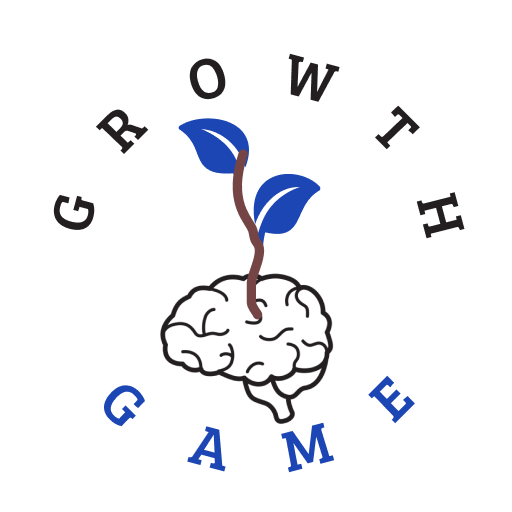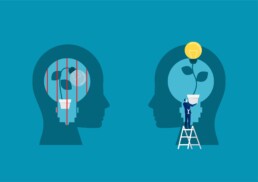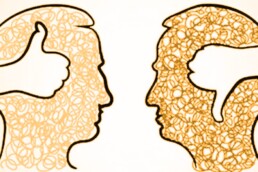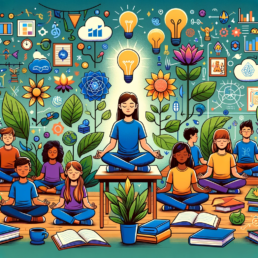The Link between GROWTH Mindset and Mental Health among Adolescents
The concept of a growth mindset revolves around the belief in one's potential for development and adaptability. Embracing a growth mindset, characterized by a belief in flexible attributes, encourages constructive approaches to managing anxiety, frustration, and disappointment, fostering resilience. Individuals with a growth mindset exhibit increased persistence and resilience when confronted with challenges, utilizing effort-oriented strategies to achieve their goals. This mindset is associated with decreased stress levels and self-reported psychological symptoms, providing relief in scenarios such as family stress during adolescence.
In contrast, a fixed mindset, emphasizing entity theories of personality, has been correlated with heightened self-reported stress and anxiety, particularly following ostracism, along with elevated psychosocial stress and psychopathology.
The GROWTH Mindset research among adolescents, suggests that is is closely linked with improved psychological well-being.
The idea of a growth mindset, introduced by Dweck, reflects a fundamental belief that talents can be developed through practice, influencing thoughts and behaviors. Mindset impacts motivation, influencing academic resilience and performance. Both grit and mindset are connected to academic achievement, subjective well-being, and reduced psychopathology. Research suggests that the belief in potential development stimulates long-term learning, persistence, and positive academic outcomes from primary education to higher education.
A growth mindset correlates with improved academic outcomes and reduced stress levels. This mindset is positively linked to learning engagement and negatively correlated with perceived stress during events like the COVID-19 pandemic. Maintaining a growth mindset is particularly advantageous for students from lower-income families, aiding them in overcoming the detrimental effects of poverty on academic achievement.
Additionally, a growth mindset is associated with self-efficacy for health behaviors and perceived control, indicating that individuals with this mindset are more likely to take control of their health.
GROWTH Mindset Best Practices Report
How familiar are students in different European countries with the concept and advantages of a Growth Mindset? - Best Practices Report
In order to find out what exactly are the complicating factors in spreading and teaching growth mindset principles in Europe, the Growth game project consortium carried out desk research on relevant growth mindset interventions applied in partner countries and conducted interviews with children and teenagers aged 10-15, teachers, parents and youth work professionals. The aim of the Best Practices Report is to reveal the current status of growth mindset implementation in the participating countries, the challenges they are facing and to give insight in ways the Growth
Game can be different (and more effective) from existing Growth Mindset interventions.
The target of the research were children and teenagers aged 10-15, caregivers and (foster)parents of children aged 4-18 and teachers and youth workers working with children aged 10-15. The different target groups have been interviewed using different methods: small group discussions, online survey and focus group discussions.
The findings of the project partners’ research is rather different in every participating country.
In Romania, the Growth Mindset is part of the school curriculum for children between 12-13 years, as part of the “Personal and Professional development” compulsory subject. In addition to this, there are a few NGO-s implementing Growth Mindset in their educational programmes.
In the Netherlands, the research showed that approaches to Growth Mindset implementation are mainly focused on teachers so they can use it with their everyday work with school children. Howewer, the principals of Growth Mindset are used in many different learning activities for various age groups both in compulsory and extra cullicular classes, like the KAW (class as a workshop) programme, Kanjertraining (intervention method in primary and secondary education
designed to decrease unpleasant feelings and problem behaviour and to increase well-being and self-esteem).
According to the results of the research of the project partner in Cyprus, it is clearly evident that primary/secondary education in Cyprus has slowly and steadily attempted to move away from ‘traditional’ teaching methods and Growth Mindset practices are indeed implemented in schools and at home with children. There’s an organized, wide-scale implementation of the Growth Mindset related subjects in national schools is the ‘’Social and Emotional Education at School’’ programme in primary education, that focuses on psychosocial support, the development of interpersonal skills, development of resilience and adaptation to the school environment and wider society.
As the Estonian students perform very well in the international tests, it can be concluded that Estonia’s education system is effective and ensures equity. According to their answers, they are satisfied with their school education and their prospects in life. This can be because the Estonian educational system has already integrated the Growth Mindset into their teaching strategy on more educational levels, students of different age groups can participate in learning
programmes as Professional Learning Communities and Schools in motion.
After achieving all this information from the four different countries, Growth Game project partners have concluded that there’s a common need for a tool to teach Growth Mindset in an immersive, gamified way that can be implemented in different kinds of learning situations. They are looking forward to receive feedback from the teachers and students after they have tried out the Serious Game collection the partners have developed.
A Powerful Duo: Feedback and Self-Perception
"I'm not good at this"
When we say things like "I can't" or "I'm not good at this", it's all about how we see ourselves and our attitude toward trying new things, learning, and improving ourselves. But how do we decide if we can or cannot do something? Who told us that? Who taught us that we're not able to?
“Even in the growth mindset, failure can be a painful experience. But it doesn't define you. It's a problem to be faced, dealt with, and learned from.”
Carol Dweck
As humans, we frequently assess the performance of others. We provide feedback on the results and talents of others around us, whether in a classroom, on a sports team, or in the business. However, we may only sometimes be aware of the effect our input has on someone's self-perception.
The self-perception is a mental attitude that starts building when you're a kid and is a complex process influenced by many things. Feedback plays a big role in this process. It helps shape how you see yourself, acting like an inner voice, whether it's critical or supportive.
To better grasp the importance of having mental strength and a resilient mindset when facing challenges, you can check out an interview with a tennis world champion.
Dynamic relationship
The dynamic relationship between feedback and self-evaluation is frequently mentioned in articles about learning and teaching. Recent studies have systematically investigated its meaning. Studies and experiments led by Carol Dweck, the creator of Growth Mindset Theory, provided insights into how feedback influences self-perception among youth.
Research indicates that the way we provide feedback can greatly influence how individuals view themselves.
- For example, if someone receives feedback that focuses solely on their weaknesses, they may begin to see themselves as inadequate or incompetent.
- On the other hand, if someone receives feedback that highlights their strengths and potential, they may feel more confident and motivated to improve.
Constructive feedback serves as a valuable tool in the development of a child's belief system. When delivered in a supportive and nurturing manner, feedback can provide guidance, encouragement, and direction. It helps children understand their strengths and weaknesses, enabling them to become more self-aware individuals. Constructive feedback empowers youth to set realistic goals, learn from their mistakes, and strive for continuous improvement.
How to use your power
Parents, teachers, mentors are playing a big role in shaping what kids believe about themselves. Even peers have an impact—positive feedback boosts confidence, but negative feedback can lead to self-doubt.
While external feedback is undeniably important, it is crucial to strike a balance between external validation and fostering self-belief. Encouraging children to develop a strong sense of self-worth and self-acceptance empowers them to navigate life's challenges with resilience and confidence. By promoting self-reflection, mindfulness, and self-assessment, youth can develop an internal locus of control, enabling them to rely on their judgement and beliefs while considering external feedback as a valuable perspective.
Here are some recommendations for providing constructive feedback:
- Start with positive feedback: Begin by acknowledging the strengths and successes of the individual. This sets a positive tone for the feedback and helps to build confidence.
- Be specific: When providing feedback on areas for improvement, be specific about what the individual can do to improve. Vague feedback such as "do better" or "try harder" is not helpful.
- Offer solutions: Instead of simply pointing out mistakes or weaknesses offer suggestions for how the individual can improve. This shows that you are invested in their success and want to help them grow.
- Focus on effort, not just results: It's important to acknowledge the effort and hard work that an individual puts into a task, even if the results are not perfect. This helps to build resilience and a growth mindset.
By following these recommendations, we can provide feedback that is helpful, fair, and safe for everyone. Whether it's in a classroom setting, on a sports team, or in the workplace, we all have the power to positively impact the self-perception and confidence of those around us. Let's use that power for good.
Article based on:
Ahmavaara, A. M., & Houston, D. M. (2007). The effects of selective schooling and self-concept on adolescents' academic aspiration: An examination of Dweck's self-theory. British Journal of Educational Psychology, 77(3), 613-632. https://bpspsychub.onlinelibrary.wiley.com/doi/10.1348/000709906X120132
Dweck, C. (2008). Mindsets and Math/Science Achievement. New York: Carnegie Corporation of New York, Institute for Advanced Study, Commission on Mathematics and Science Education. http://www.growthmindsetmaths.com/uploads/2/3/7/7/23776169/mindset_and_math_science_achievement_-_nov_2013.pdf
Fong, C.J., Patall, E.A., Vasquez, A.C. et al. A Meta-Analysis of Negative Feedback on Intrinsic Motivation. Educ Psychol Rev 31, 121–162 (2019). https://doi.org/10.1007/s10648-018-9446-6
Jay Shetty Podcast. (2020, September 19). CELEBRITY ATHLETE Reveals The MINDSET You Need To WIN IN LIFE | Novak Djokovic & Jay Shetty. YouTube.
https://www.youtube.com/watch?v=MoAcmJv6_a8
Liu, W. C. (2021, January 11). Implicit theories of Intelligence and achievement goals: A look at students’ intrinsic motivation and achievement in Mathematics. Frontiers. https://www.frontiersin.org/articles/10.3389/fpsyg.2021.593715/full
TED. (2014, December 17). The power of believing that you can improve | Carol Dweck. YouTube. https://www.youtube.com/watch?v=_X0mgOOSpLU
Wood, D. (2000). Self-theories: Their Role in Motivation, Personality and Development. By Carol S. Dweck. Psychology Press, Hove, 1999. pp. 195. The Journal of Child Psychology and Psychiatry and Allied Disciplines, 41(8), 1077-1084.
Harmonizing Growth: The Synergy of Mindfulness and Well-Being in Cultivating a Growth Mindset in Education
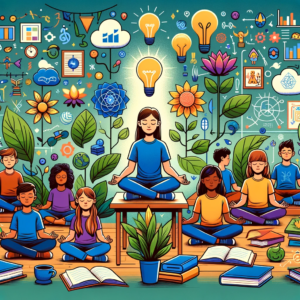
The integration of mindfulness and well-being into educational settings plays a pivotal role in nurturing a growth mindset among children and teenagers. A growth mindset, as defined by psychologist Carol Dweck, is the understanding that abilities and intelligence can be developed through dedication and hard work. This mindset is particularly crucial in educational environments where students are constantly learning and adapting.
Mindfulness in education encourages students to approach learning experiences with a sense of curiosity and openness. It helps them become more aware of their learning processes, thoughts, and emotions, allowing them to engage more deeply with the material and overcome academic challenges. Mindfulness practices in schools, such as focused breathing or guided reflections, can reduce stress and anxiety, fostering a learning environment conducive to growth and exploration.
Well-being is equally important in education. Students who are physically and mentally healthy are more likely to be engaged and motivated learners. Schools that prioritize well-being create supportive environments that encourage students to take risks and learn from their mistakes without fear of judgment. This supportive atmosphere is essential for cultivating a growth mindset, as it empowers students to view challenges as opportunities for development rather than insurmountable obstacles.
The synergy between mindfulness, well-being, and a growth mindset in education is profound. Mindfulness enhances students' emotional regulation and self-awareness, essential skills for adapting to new challenges and persisting through difficulties. Well-being provides the foundational support for students to fully engage in their educational journey. Together, these elements create a holistic approach to learning, where students are not only educated academically but also in terms of their personal and emotional development.
Incorporating mindfulness and well-being into education equips children and teenagers with the tools to develop a growth mindset, an invaluable asset in their academic journey and beyond. It prepares them to face the challenges of the future with resilience, adaptability, and a lifelong love for learning.
